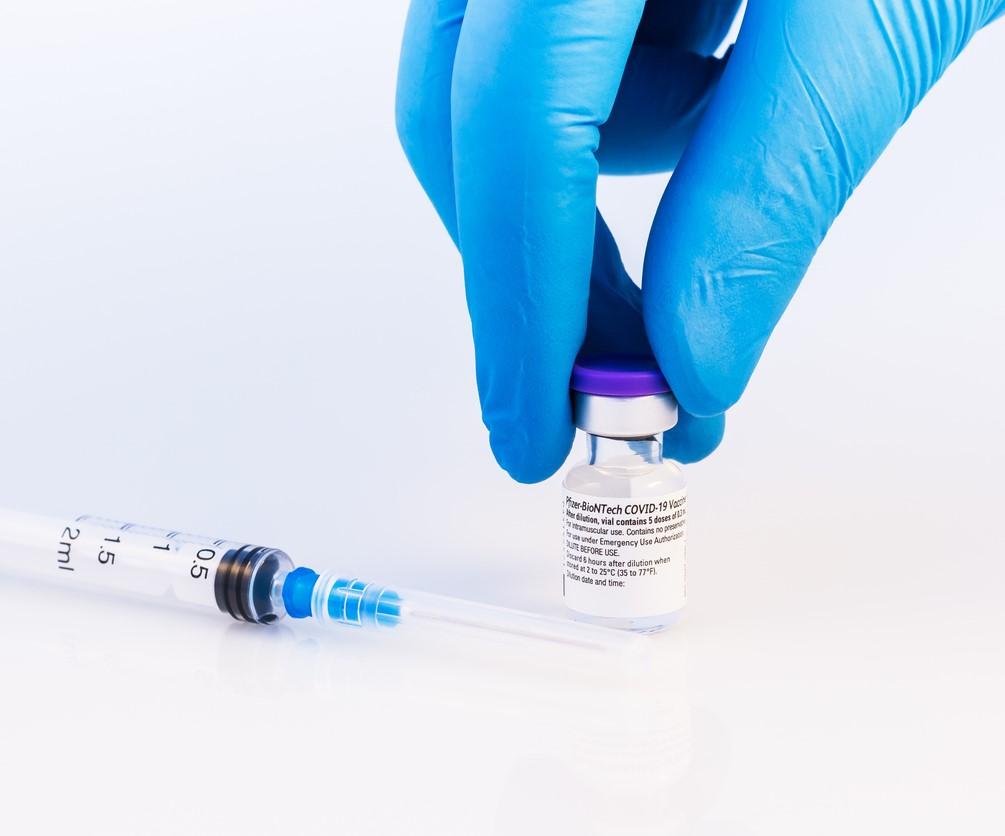The Centers for Disease Control and Prevention (CDC) and the Food and Drug Administration (FDA) late yesterday contradicted vaccine makers Pfizer-BioNTech on their assertion that people who received the two-dose mRNA vaccine will likely need a third booster dose of vaccine within 6 to 12 months of initial administration.
Pfizer said it was working on developing a new mRNA vaccine that targets rising variants of concern, including Delta (B1617.2). They also said initial small trial results show a third booster dose of the current vaccine raised antibodies to variants, including Delta and Beta.
"While Pfizer and BioNTech believe a third dose of BNT162b2 has the potential to preserve the highest levels of protective efficacy against all currently known variants including Delta, the companies are remaining vigilant and are developing an updated version of the Pfizer-BioNTech COVID-19 vaccine that targets the full spike protein of the Delta variant," Pfizer-BioNTech said in a press release yesterday.
In an interview with Reuters, Pfizer's chief scientific officer, Mikael Dolsten, MD, PhD, said recent evidence from Israel shows waning protection 6 months after vaccine recipients had completed their second dose of the vaccine.
"It's a small data set, but I think the trend is accurate: Six months out, given that Delta is the most contagious variant we have seen, it can cause infections and mild disease," Dolsten said of the evidence from Israel. He said his company would be submitting data to the FDA by the end of the month to request authorization of a booster dose.
But late yesterday afternoon CDC and FDA issued their own statement.
"Americans who have been fully vaccinated do not need a booster shot at this time," the federal agencies said. "We continue to review any new data as it becomes available and will keep the public informed. We are prepared for booster doses if and when the science demonstrates that they are needed."
Michael T. Osterholm, PhD, MPH, director of the University of Minnesota's Center for Infectious Disease Research and Policy, publisher of CIDRAP News, said he personally and professionally supports the message from the CDC and FDA, but he wishes companies and government agencies could better coordinate messages in the future.
"The events of the past day only add to the public's confusion about whether we in the public health community and vaccine communities have our act together, and that's terribly unfortunate, because it only undercuts our ability to promote these vaccines," he said.
"This is not a matter of inconvenience; this is a matter of public credibility."
States tackle Delta rise
The United States reported 20,061 new COVID-19 cases yesterday, and 257 deaths, according to the Johns Hopkins COVID-19 tracker.
In Missouri, which is one of the country's biggest Delta hot spots, Gov. Mike Parson said he doesn't want government employees going door-to-door to encourage people to get vaccinated, the Associated Press reports. Earlier this week President Biden said the federal government would be focused on smaller, community efforts to vaccinate hesitant Americans, including knocking on doors.
"I have directed our health department to let the federal government know that sending government employees or agents door-to-door to compel vaccination would NOT be an effective OR a welcome strategy in Missouri!" he tweeted. Missouri is averaging more than 1,000 new cases per day, up from 650 in June.
Local health officials say Los Angeles County is seeing exponential growth of COVID-19 cases as the Delta variant takes over as the dominant strain, according to CNN. The case rate in the county jumped from 1.74 to 3.5 cases per 100,000 people in one week.
Other US developments
- Pressure is growing for the FDA to grant full approval to the Pfizer and Moderna vaccines to help convince more Americans to get their shots, Politico reported.
- Today in the CDC's Morbidity and Mortality Weekly Report are two reports on adolescents and COVID-19. The first details an outbreak caused by the Delta variant at an Oklahoma gymnastics facility in April and May. The outbreak included 21 laboratory-confirmed Delta cases and 26 epidemiologically linked cases, with overall facility and household attack rates of 20% and 53%, respectively.
- The second study was on vaccine uptake in adolescents. In April, 52% of unvaccinated adolescents aged 13 to 17 years and 56% of parents of unvaccinated adolescents aged 12 to 17 years reported intent for adolescent COVID-19 vaccination. Concerns about safety and side effects were the biggest barriers to vaccination.




















